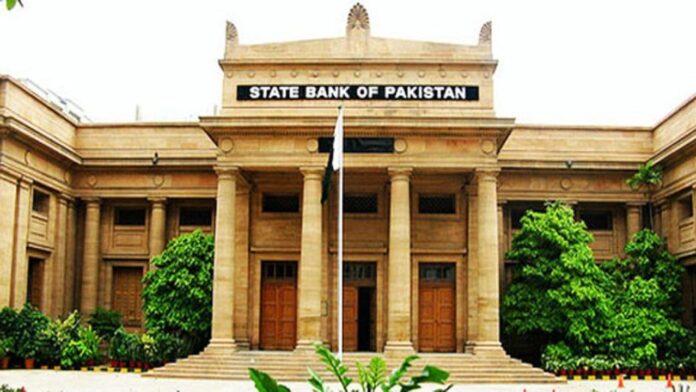ISLAMABAD: More than nine months after the State Bank of Pakistan initiated an inquiry into the role of commercial banks in the depreciation of the rupee, it has come out that the SBP has sent the banks away with a slap on the wrist and a clean chit.
During a meeting of the Senate’s Standing Committee on Finance and Revenue, the Deputy Governor of the central bank said that the banks had been cleared in the inquiry because there was no illegal activity even though they had shown “irresponsibility” in their actions.
The origins of the controversy and the inquiry
The SBP had first launched the inquiry back in September 2022 when the finance ministry had decided to let the dollar rate float freely. The SBP was looking to investigate banks that had opened letters of credit (LCs) at higher rates than the spot rate. The banks have autonomy over how and when they issue their LCs, but since the SBP regulates these banks they get to determine the rate of exchange at which these LCs work.
You see, when two trading partners engage in a deal and there is a lack of trust between the two parties, they ask banks to act as the middleman. In short, the bank issues a letter of credit to the person selling their goods, saying that they will bear the risk if the person buying defaults on the payment. This normally happens in particular on the trade of natural resources such as oil and LNG. Banks make money off of these transactions, but they are also bound by what is known as a spot rate — which is the price quoted for the immediate settlement of a commodity or for the rate of exchange.
To put it even more simply, banks rely on LCs to make money on the foreign exchange market. However, they are restricted by the spot market and exchange rates which are set by the SBP. That is where they were allegedly trying to run circles around the central bank.
Irresponsible but not illegal
During the Senate Committee’s hearing, the SBP’s Deputy Governor presented a report on whether the banks actually charged extra US dollars from their customers to open LCs and kept the change. The report found that no illegal activity was observed.
The committee was apprised that the SBP has moved to market based foreign exchange (FX) regime, whereby the spread charge on FX sale/purchase transaction is generally determined by the banks, on the basis of market conditions, such as (FX) liquidity, and short Net Open FX Positions of the banks. These were the main reasons for charging higher spreads by the banks during May to August 2022.
As per chapter 2 of the FE Manual issued by the SBP, banks are barred from charging more than a defined margin set by the SBP. In point number 11 of chapter 2, the SBP states the Authorised Rates of Foreign Exchange. If you explore the manual further or have industry experts comment on it, they will tell you that Section 4(2) of the Act states that unless otherwise directed by the SBP, authorised dealers, authorised money changers and exchange companies are free to determine exchange rates for the conversion of Pakistani currency into any foreign currency or vice versa.
The SBP has granted general permission to authorised dealers which enables them to determine their own rates of exchange, both for ready and forward transactions for the public. This, however, is subject to the condition that the margin between the buying and selling rates should not exceed 50 paisas per US dollar or its equivalent in other currencies. In many cases the margin was exceeding this.
Dr Anayat Hussain said that Banks’ role was irresponsible on rupee depreciation and profiteering, while the Deputy Governor SBP said that the upcoming budget may tax the profits of banks making extra profits on the dollar.
It was further informed that the SBP has conducted limited scope inspection of the matter and furnished its report to the Finance Division. However, it was observed that the overall increase in FX income of the banks was mainly driven by higher spreads due to heightened volatility. In some cases, the banks charged higher spreads.
SBP was in the process of imposing monetary penalties on the banks. It was intimated that the SBP has initiated enforcement action against the banks involved, in accordance with its supervisory framework. Moreover, in order to ensure that the banks follow a reasonable and transparent approach in pricing their transactions and to improve the market conduct in future, SBP held meetings with the banks and warned them about their practices, advising them to rationalise the spreads being charged to the customers.
The committee sought a report in black and white and decided to drop the agenda item.

























Even with resources available with state bank, they still can not cope with it, this indeed is irresponsible act from a financial pillar of that stature.